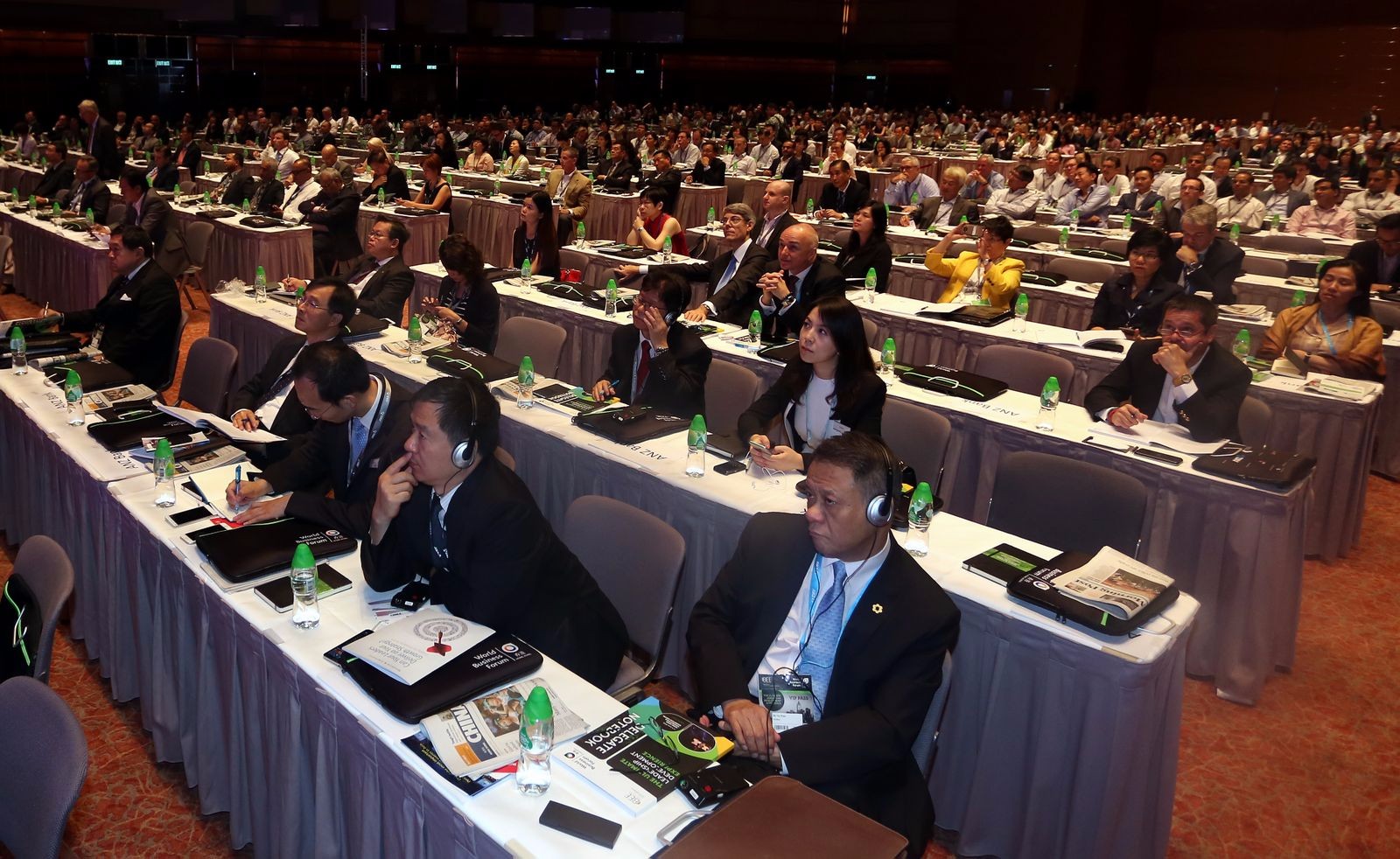2015-06-05
Xie Yu

Having been taken hostage four times in the past, George Kohlrieser has more experience than many psychologists in handling the emotions of hostage victims, and professes what he believes in — most conflicts can be resolved through patience and perseverance. At the World Business Forum in Hong Kong on Wednesday, Kohlrieser, a licensed psychologist, scholar and bestseller writer and currently a professor of leadership and organizational behavior at the International Institute for Management Development in Switzerland, told the audience how to achieve high performance leadership by building the power of focus, a cycle of bonding, resolving conflicts and making concessions. Great leaders start with themselves, by understanding their own foundations and being aware of their secure bases — meaning the people, places, events, experiences, beliefs which have shaped them, he said. Only from this point can one become focused on external goals and then aspire to take the fear out of others. Leaders are often faced with conflicts, Kohlrieser said, acknowledging that conflict solving is problematic in both Asia and the West. In his words, conflict is nothing more than a difference and the task is to turn a conflict into something positive. But if you come with a mindset that conflict is bad, it will limit your options, he argued. Conflict is a difference between two or more persons or groups characterized by tension, emotionality, disagreement and polarization, where bonding is broken or lacking, thus negotiation is crucial, Kohlrieser said, adding that the complete stages of negotiation would include creating bonds, identifying needs and wants, dialogue, and realizing mutual gain. “Differences can come in the form of values, goals, perceptions, power and rivalry, resistance to change, personal needs and lack of communication. All of these are issues that you have to be able to put on the table and understand that,” Kohlrieser said as he strode on the stage. He used the first major meeting between Ronald Reagan (former US president) and Mikhail Gorbachev (former Soviet leader) as an example to show how crucial concession works in resolving conflicts. Reagan got really offended by something Gorbachev said and he stood up and walked toward the door, huffing and puffing. But he stood at the door, turned round, changed his mindset, his emotions, and his body and reached out his hand to Gorbachev. That, Kohlrieser said, was the beginning of a major relationship. When there is conflict and tension, ask questions and understand the need, Kohlrieser urged. He also touched on the issue of youth education in Hong Kong, saying teachers need to ask why young people are very often angry or dissatisfied. Try to understand their minds and answer their questions. “Teaching is done with telling. Teachers have to ask questions. And, as for the government, it should be sensitive to people being unhappy or who tend to break the bond,” he added. “Maintaining strength and maintaining life balance”, Kohlrieser said, are the key elements in achieving high performance. “Stress is not as bad as we thought … it depends on how you think about it. If you take it negatively, and feel yourself as a hostage, then it will have serious consequences. But a positive mindset will change the impact,” he said, adding:“Never be a hostage to any one or anything. Focus on excellence through lifelong learning.” Source: http://www.chinadailyasia.com/hknews/2015-06/04/content_15272348.html